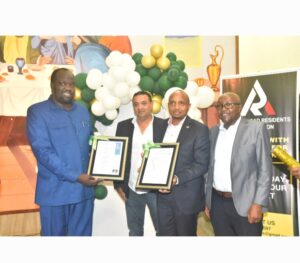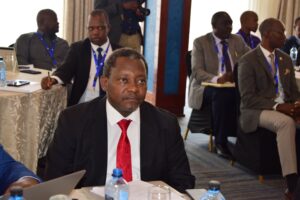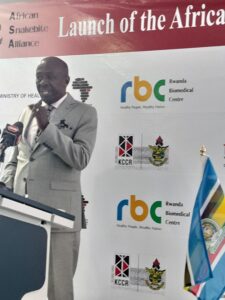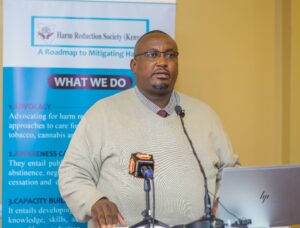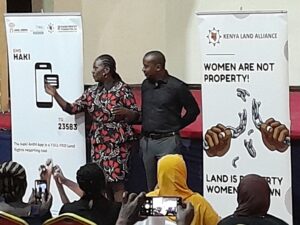
The Competition Authority of Kenya has approved the proposed acquisition of certain assets of Style Industries Limited by Hair Manufacturing Kenya Limited on condition that at least 70 Percent of the target firm’s employees are retained on employment terms that are no less
favourable than their current terms for 12 months following completion of the transaction.
This approval has been granted based on the finding that the transaction is unlikely to
negatively impact competition in the market for hair extensions and wigs. However, the
transaction will elicit negative public interest concerns.
Hair Manufacturing Kenya Limited is a private limited liability company incorporated in Kenya. It does not have any operations in Kenya since it is newly incorporated for purposes of
this transaction.
Style Industries is a private limited liability company incorporated in Kenya. Its principal activity is manufacturing and distribution of hair addition products such as braids, weaves and wigs under the brand name Darling. Style Industries is ultimately controlled by Godrej Consumer Products Limited (GCPL India).
The proposed transaction involves the acquisition of certain assets — plant & machinery, office equipment and inventory — of Style Industries by Hair Manufacturing.
The transaction therefore, qualified as a merger within the meaning of Section 2 and 41 of the Competition Act No. 12 of 2010. The Act stipulates that a merger or takeover may occur when an undertaking directly or indirectly acquires control over another business within Kenya.
This may happen through, among others, purchase/lease of shares, exchange of shares, vertical integration.
Further, merging parties whose combined turnover or assets, whichever is higher, is over Ksh.1 Billion are required to seek approval from the Authority prior to implementing the proposed transaction. The transaction between Hair Manufacturing and Style Industries met this
threshold for mandatory notification and full analysis as provided for in the Competition (General) Rules, 2019.
During merger analysis, and in order to determine the impact that a transaction will have oncompetition, the Authority identifies the relevant product market as well as the relevant geographic market.
The relevant product market comprises products/services that are interchangeable or substitutable by the consumer due to their characteristics, prices and/or intended use. The acquirer has no operations in Kenya. On the other hand, the target manufactures and distributes hair addition products such as braids, weaves and wigs. Therefore, the relevant product market for purpose of analyzing the proposed transaction is the market for hair extensions and wigs.
Determination of the relevant geographic market involves interrogating the area in which merging parties undertake the business and in which competition conditions are sufficiently similar. With regard to the proposed transaction, Style Industries sells its products throughout the country. Therefore, the relevant geographic market is national.
The market for hair extensions and wigs is largely fragmented having players with local manufacturing capabilities as well as a significant extent of imported goods. It is characterized by many players comprising local manufacturers and importers.
Some notable players include; Angels Hair Collection Kenya (Sanaa Industries Ltd), Lush Hair Kenya (Tolaram Group), Fashion Idol (Rebecca Fashion), Olivia Hair Kenya (Di Lorenzo Ltd), Africa Hair Factory Ltd., Unique Beauty Salon Consultants (UBSC), Style Haven Ltd., Exotic Dreadlocks & Weaves Ltd. and Lazy Daisy & Shear Elegance, among others. In the last 5 years, the market has experienced the entry of new players like Lush Hair Kenya and Olivia Hair Kenya.
6wresearch, a global market research and consulting firm, reports that Kenya has increasingly been relying more on imports to meet its growing demand of human hair extensions. Domestic production and supply trails local demand.
According to Volza, an import export database company based in India, 2021 import data places Kenya’s annual hair extension shipments at 49. These shipments belong to 21 importers who access their product from 20 suppliers. Solpia Industries accounted for the highest import market share with 12 shipments. Torchmark Enterprises Limited had 5 shipments while Rose Naisenya Suakei was at third with 4 shipments.
A criterion of assessing a merger’s impact on competition is the post-merger market share of the undertakings involved in the transaction. The industry’s revenue in 2022 was approximately Ksh. 80 billion. In the same year, the target’s market share stood at 5%. Therefore, the proposed transaction will not affect market structure and concentration since Style Industries will exit the market and be replaced by Hair Manufacturing. Additionally, the
target will continue to face competition from other players controlling 95% of the market.
The structure and concentration of the market for hair extensions and wigs will not change in Kenya, as a result of the proposed transaction is unlikely to lead to a substantial lessening of competition in the market for hair extensions and wigs.
During merger analysis, the Authority also considers the impact that a proposed transaction will have on public interest. Public interest in this case refers to various economically-inclined concepts that, when considered, protect the welfare of the Public. In the Competition Act, some of the public interest considerations are;
a) extent to which a proposed merger would impact employment opportunities;
b) impact on competitiveness of SMEs;
c) impact on particular industries/sectors; and impact on the ability of national industries to compete in international markets.
As per the parties’ submissions, the target’s commercial position and prospects is not promising, as evidenced by a review of its financial statements for the three years to March 2023. Absent the proposed transaction, it is highly likely that the target firm will exit the market, leading to a loss of all the current jobs and assets. Therefore, the proposed transaction will have a positive effect on public interest. However, the transaction is also elicit negative public interest concerns. Specifically, it will lead to the loss of 652 jobs which is equivalent to 30% of the target’s 2,171 employees.
Premised on the above, the Authority approved the proposed acquisition of certain assets of Style Industries Limited by Hair Manufacturing Kenya Limited on condition that the acquirer retains at least 70% of the target’s employees on terms that are no less favourable thanwhat they currently enjoy for 12 months following completion of the transaction.
Approval of a merger by the Authority does not relieve parties to the transaction from complying with other legal and regulatory requirements, especially those relating to employment


